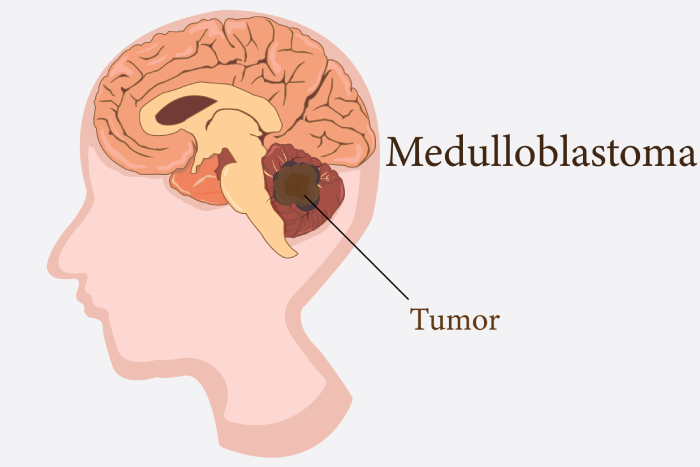Understanding L-Histidine Supplement
As a nutrition expert, I frequently encounter questions about L-Histidine supplements and their role in human health. L-Histidine is a fascinating essential amino acid that your body cannot produce on its own, making it crucial to obtain through either dietary sources or supplementation. What sets this amino acid apart is its unique ability to support multiple bodily functions, from protein synthesis to maintaining the body’s pH balance.
When considering an L-Histidine supplement, it’s essential to understand that this compound serves as a building block for proteins and plays a vital role in producing histamine, a crucial molecule involved in immune responses and digestion. Many health-conscious individuals are turning to L-Histidine supplementation to support their overall well-being and address specific health concerns.
Chemical Structure and Properties
The L-Histidine structure features a distinctive imidazole side chain, setting it apart from other amino acids. With a molecular weight of 155.15 g/mol, this compound contains both a basic amino group and an acidic carboxyl group. This unique chemical configuration enables L-Histidine to function as a natural buffer in your body, helping maintain optimal pH levels in various tissues and cellular environments.
The buffering capacity of L-Histidine makes it particularly valuable in muscle tissue, where pH regulation is crucial for optimal performance. Understanding these properties helps explain why many athletes and fitness enthusiasts incorporate L-Histidine supplements into their regimens.
Natural Sources and Forms
While discussing L-Histidine supplements, it’s important to note that this amino acid comes in several forms. L-Histidine hydrochloride monohydrate is among the most common forms found in supplements, chosen for its superior stability and absorption properties. This particular form ensures better bioavailability, making it an efficient choice for those seeking supplementation.

The Science Behind L-Histidine
Molecular Structure and Biochemical Role
The biochemical significance of L-Histidine extends far beyond its basic structure. Within your body, this essential amino acid serves as a precursor to histamine, playing a crucial role in:
- Immune system responses
- Gastric secretion regulation
- Neurotransmitter production
- Metal ion binding and transport
- Antioxidant activities
These diverse functions stem from the unique molecular properties of L-Histidine, particularly its ability to participate in acid-base reactions and metal ion coordination. This versatility makes it an invaluable component in numerous biological processes.
L-Histidine Hydrochloride Monohydrate Explained
When exploring L-Histidine supplements, you’ll frequently encounter L-Histidine HCl monohydrate. This specific form combines the amino acid with hydrochloride and a water molecule, resulting in enhanced stability and improved absorption characteristics. The monohydrate form ensures better preservation of the compound’s beneficial properties during storage and helps maintain its effectiveness over time.
Health Benefits and Functions
Cognitive and Neurological Benefits
Scientific research continues to unveil impressive benefits of L-Histidine for brain health. As a precursor to histamine, this amino acid influences various neurological functions:
- Sleep-wake cycle regulation
- Cognitive performance enhancement
- Memory formation and retention
- Learning process facilitation
- Appetite control
- Mood regulation
Recent studies suggest that maintaining adequate L-Histidine levels through diet or supplementation may support long-term cognitive health and potentially protect against age-related cognitive decline.
Physical Performance and Muscle Health
For athletes and fitness enthusiasts, the benefits of L-Histidine supplementation extend to several aspects of physical performance:
- Enhanced muscle protein synthesis
- Improved buffer capacity during intense exercise
- Accelerated post-workout recovery
- Increased endurance and stamina
- Better muscle carnosine synthesis
- Reduced exercise-induced fatigue
The role of L-Histidine in forming carnosine, a crucial compound for muscle function, makes it particularly valuable for those engaged in regular physical activity.
Skin and Immune System Support
L-Histidine demonstrates remarkable properties in supporting both skin health and immune function:
- Protection against UV radiation damage
- Enhancement of skin barrier function
- Strengthening of immune system responses
- Acceleration of wound healing processes
- Reduction of inflammation markers
- Support for collagen production
These benefits make L-Histidine supplementation particularly interesting for individuals focused on skin health and immune system optimization.
L-Histidine Deficiency
Understanding L-Histidine deficiency is crucial when considering supplementation options. While severe deficiency is rare in healthy individuals consuming a balanced diet, certain conditions and lifestyle factors may increase your risk of inadequate L-Histidine levels. Taking an L-Histidine supplement can help address these deficiencies effectively.
Common Symptoms and Risk Factors
L-Histidine deficiency symptoms can manifest in various ways, affecting multiple body systems. When your body doesn’t maintain adequate levels of this essential amino acid, you might experience:
- Unexplained fatigue and weakness
- Impaired cognitive function
- Digestive issues
- Compromised immune responses
- Poor wound healing
- Skin problems
- Anemia-like symptoms
Recognizing these signs early can help you determine whether L-Histidine supplementation might be beneficial for your health needs.
High-Risk Groups
Certain populations may be more susceptible to L-Histidine deficiency and could benefit from L-Histidine supplements:
- Athletes and intense training individuals
- Older adults
- Vegetarians and vegans
- People with absorption disorders
- Individuals with chronic inflammatory conditions
- Those following restricted diets
Natural Sources of L-Histidine
Food Sources
Before considering L-Histidine supplementation, it’s important to understand the rich dietary sources of this amino acid. L-Histidine foods include:
- Animal proteins (meat, poultry, fish)
- Dairy products (milk, cheese, yogurt)
- Eggs
- Legumes (soybeans, kidney beans, chickpeas)
- Seeds (pumpkin, sesame)
- Whole grains
- Some vegetables
The bioavailability of L-Histidine from these food sources varies, which is why some individuals might consider supplementation to ensure adequate intake.
Bioavailability and Absorption
The effectiveness of both dietary L-Histidine and L-Histidine supplements depends significantly on proper absorption. Several factors can influence this process:
- Overall digestive health
- Presence of other amino acids
- Timing of consumption
- Individual metabolic factors
- Existing health conditions
- Medications
L-Histidine Supplements
Types and Forms Available
When exploring supplement options, you’ll encounter various forms:
- Free-form L-Histidine
- L-Histidine hydrochloride monohydrate
- L-Histidine monohydrochloride monohydrate
- Blended amino acid supplements containing L-Histidine
Each form has its unique characteristics, and choosing the right one depends on your specific needs and health goals.
Recommended Dosage
Determining the appropriate L-Histidine dosage requires careful consideration of several factors:
- Individual body weight
- Specific health conditions
- Training intensity (for athletes)
- Overall dietary intake
- Treatment goals
- Other medications or supplements
While typical L-Histidine supplement doses range from 500mg to 4g daily, it’s essential to consult with a healthcare provider to determine your optimal dosage.
Quality Considerations
When selecting an L-Histidine supplement, consider these quality markers:
- Third-party testing certification
- Manufacturing standards (GMP compliance)
- Purity levels
- Source transparency
- Storage conditions
- Expiration dates
- Form and bioavailability
- Additional ingredients or fillers
Understanding these factors helps ensure you choose a high-quality supplement that meets your needs effectively.
Who Should Consider L-Histidine Supplementation?
Target Demographics
The decision to begin an L-Histidine supplement regimen should be based on individual needs and circumstances. Athletes engaged in high-intensity training often find these supplements particularly beneficial for supporting muscle recovery and performance. Additionally, individuals experiencing persistent fatigue or those with compromised immune systems might benefit from L-Histidine supplementation. Older adults, who typically experience decreased protein absorption, may also find value in incorporating these supplements into their daily routine.
Health Conditions That May Benefit
Various health conditions might warrant consideration of L-Histidine supplements. Those with inflammatory skin conditions often report improvements when supplementing with L-Histidine, likely due to its role in maintaining skin barrier function. Individuals with specific metabolic conditions or those recovering from surgical procedures might also benefit from supplementation. However, it’s crucial to consult with healthcare providers before starting any new supplement regimen.
Safety and Side Effects
Known Side Effects
Understanding potential L-Histidine side effects is crucial for safe supplementation. While generally well-tolerated, some individuals might experience mild digestive discomfort when first starting supplementation. At higher doses, some users report temporary headaches or feelings of fatigue. These effects typically resolve as the body adjusts to the supplement routine. The key is to start with lower doses and gradually increase as needed while monitoring your body’s response.
Drug Interactions
When considering an L-Histidine supplement, it’s essential to be aware of potential interactions with medications. This amino acid can interact with certain medications, including some types of antihistamines and drugs used to treat acid reflux conditions. The interaction potential stems from L-Histidine’s role in histamine production and pH regulation within the body. Always discuss your current medication regimen with a healthcare provider before starting supplementation.
Precautions and Contraindications
Certain individuals should exercise extra caution when considering L-Histidine supplements. Pregnant or nursing women should consult their healthcare providers before starting supplementation. Those with histamine sensitivity or disorders affecting histamine metabolism might need to avoid or carefully monitor their L-Histidine intake. Individuals with liver or kidney conditions should also seek medical guidance before beginning supplementation.

How to Choose the Right L-Histidine Supplement
Quality Markers
Selecting a high-quality L-Histidine supplement requires careful consideration of several factors. Look for products manufactured in facilities that follow Good Manufacturing Practices (GMP) and undergo third-party testing. The supplement should clearly state the form of L-Histidine used, such as L-Histidine hydrochloride monohydrate, and provide transparent information about additional ingredients. Consider manufacturers who readily share their quality control processes and testing results.
Form Selection Guide
The form of L-Histidine you choose can significantly impact its effectiveness. While L-Histidine hydrochloride monohydrate is common in supplements, other forms might be more suitable for specific needs. Consider factors such as absorption rate, stability, and your individual tolerance when selecting a form. The presence of complementary ingredients that might enhance absorption or effectiveness should also factor into your decision-making process.
Optimal Usage Guidelines
Timing and Administration
The timing of your L-Histidine supplementation can influence its effectiveness. Many practitioners recommend taking these supplements on an empty stomach for optimal absorption, typically between meals or first thing in the morning. However, if you experience any digestive discomfort, taking the supplement with food might be more appropriate. Pay attention to your body’s response and adjust the timing accordingly.
Storage Requirements
Proper storage of L-Histidine ensures their potency and effectiveness over time. Store your supplements in a cool, dry place away from direct sunlight. Exposure to heat, moisture, or extreme temperature fluctuations can compromise the stability of the amino acid. Always check the expiration date and follow any specific storage instructions provided by the manufacturer to maintain the supplement’s quality.
Scientific Research and Clinical Studies
Recent Findings
Current scientific research continues to uncover new insights into L-Histidine’s therapeutic potential. Clinical studies have demonstrated promising results in areas ranging from metabolic health to cognitive function. Recent research has particularly focused on the role of L-Histidine supplements in supporting athletic performance and recovery. Investigations into its effects on skin health have shown positive outcomes, especially regarding protection against UV damage and support for natural barrier function.
Areas of Ongoing Research
The scientific community maintains active interest in exploring new applications for L-Histidine supplementation. Researchers are investigating its potential role in supporting cardiovascular health, managing inflammatory conditions, and enhancing cognitive performance. Emerging studies are also examining the relationship between L-Histidine levels and various aspects of metabolic health, opening new avenues for therapeutic applications.
Frequently Asked Questions (FAQs)
Q: What is the best time to take L-Histidine supplements?
A: For optimal absorption, take L-Histidine on an empty stomach, typically 30 minutes before meals or first thing in the morning. However, if you experience any digestive discomfort, taking it with food is acceptable.
Q: Can I take L-Histidine with other supplements?
A: Yes, but it’s best to space out amino acid supplements to avoid competition for absorption. Consider taking L-Histidine at different times than other amino acid supplements or protein supplements.
Q: How long does it take to see results from L-Histidine supplementation?
A: Individual responses vary, but many people report noticing benefits within 2-4 weeks of consistent supplementation. Some effects, particularly those related to athletic performance, may take longer to become apparent.
Q: Are there any foods rich in L-Histidine that I should include in my diet?
A: Yes, several foods contain significant amounts of L-Histidine, including poultry, fish, beef, eggs, dairy products, legumes, and whole grains. Maintaining a varied diet can help ensure adequate intake.
Q: Can L-Histidine help with muscle recovery after exercise?
A: Yes, L-Histidine plays a role in muscle protein synthesis and helps buffer acid build-up during exercise. This can contribute to improved recovery and reduced muscle fatigue.
Conclusion and Recommendations
After thoroughly examining the scientific evidence and practical applications of L-Histidine, it’s clear that this amino acid plays a crucial role in numerous bodily functions. While many individuals can obtain adequate amounts through a balanced diet, supplementation may offer additional benefits for specific populations or health conditions.
When considering supplementation, it’s essential to: First, evaluate your individual needs and health goals. Consider factors such as your current diet, activity level, and any existing health conditions.
Second, consult with healthcare professionals, especially if you have underlying health conditions or are taking medications. They can help determine if supplementation is appropriate and guide you in selecting the right dosage.
Third, choose high-quality supplements from reputable manufacturers. Look for products that undergo third-party testing and maintain transparent manufacturing practices.
Finally, monitor your body’s response to supplementation and adjust as needed. Remember that individual responses can vary, and what works well for one person may not be optimal for another.
As our understanding of L-Histidine’s role in human health continues to expand through ongoing research, we may discover additional benefits and applications. Stay informed about new developments in this field while maintaining a balanced approach to supplementation as part of your overall health strategy.
Remember that while supplementation can be beneficial, it should complement, not replace, a healthy diet and lifestyle. Focus on maintaining a well-rounded approach to health that includes proper nutrition, regular exercise, adequate rest, and stress management.



